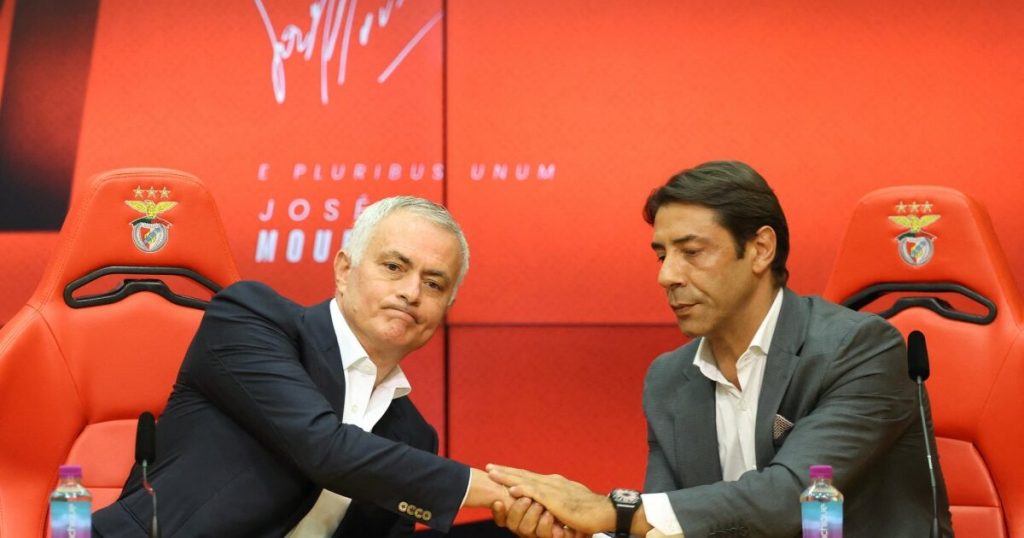A Homecoming and a Gamble: Jose Mourinho Returns to Benfica
Jose Mourinho, a name synonymous with both triumph and turbulence in the world of football management, has embarked on a new chapter in his storied career, returning to his native Portugal to take the helm at Benfica. This appointment marks a significant moment for both Mourinho and the club, representing a reunion after more than two decades and a high-stakes gamble for both parties involved. The 62-year-old manager, whose resume boasts an impressive collection of trophies from some of Europe’s most prestigious clubs, arrives at Benfica following a somewhat tumultuous period, having been sacked by Turkish side Fenerbahce just weeks prior. His arrival signals Benfica’s intent to reclaim their dominance in Portuguese football and make a significant impact on the European stage.
Mourinho’s journey back to Benfica is laden with layers of narrative and intrigue. His initial stint with the club in 2000 was remarkably brief, lasting only 11 matches before he departed. This short tenure, however, planted the seeds for what would become a meteoric rise in the managerial ranks. After a successful period at Uniao de Leiria, he joined Benfica’s fierce rivals, Porto, where he achieved unprecedented success, leading them to consecutive league titles and culminating in a remarkable Champions League victory in 2004. This triumph propelled him onto the global stage, attracting the attention of some of the biggest clubs in the world.
The subsequent years saw Mourinho become a global icon, managing Chelsea, Inter Milan, and Real Madrid, accumulating a glittering array of trophies along the way. His tactical acumen, charismatic personality, and unwavering self-belief transformed him into one of the most recognizable and controversial figures in the sport. His time at these clubs was characterized by periods of dominance punctuated by clashes with players, the media, and opposing managers. However, his undeniable success cemented his status as one of the most successful managers of his generation.
Mourinho’s more recent managerial appointments have been marked by a degree of instability and underperformance. His arrival at Manchester United in 2016 was met with great fanfare, but ultimately ended in disappointment, with the club failing to achieve their desired levels of success. Subsequent stints at Tottenham Hotspur, Roma, and Fenerbahce further contributed to a narrative of decline, raising questions about whether Mourinho could recapture the magic that defined his earlier career.
Benfica’s decision to appoint Mourinho represents a calculated risk. The club, two-time European champions, are seeking to reignite their former glory and re-establish themselves as a force to be reckoned with, both domestically and in Europe. Mourinho’s track record of success, particularly in the Champions League, makes him an attractive proposition. However, his recent struggles and his reputation for demanding absolute control could potentially create friction within the club.
The timing of Mourinho’s arrival is particularly poignant. He will soon face two of his former clubs, Chelsea and Porto, in the Champions League and Primeira Liga respectively. These matches will undoubtedly be highly charged encounters, filled with emotion and intrigue, as Mourinho returns to familiar territory, this time as the opposition. These early fixtures will serve as a litmus test for both Mourinho and Benfica, providing an early indication of whether this reunion can reignite the spark that once made Mourinho one of the most feared and respected managers in the game. The football world will be watching closely to see if “The Special One” can orchestrate another remarkable turnaround in his career, this time in the familiar surroundings of his homeland.














